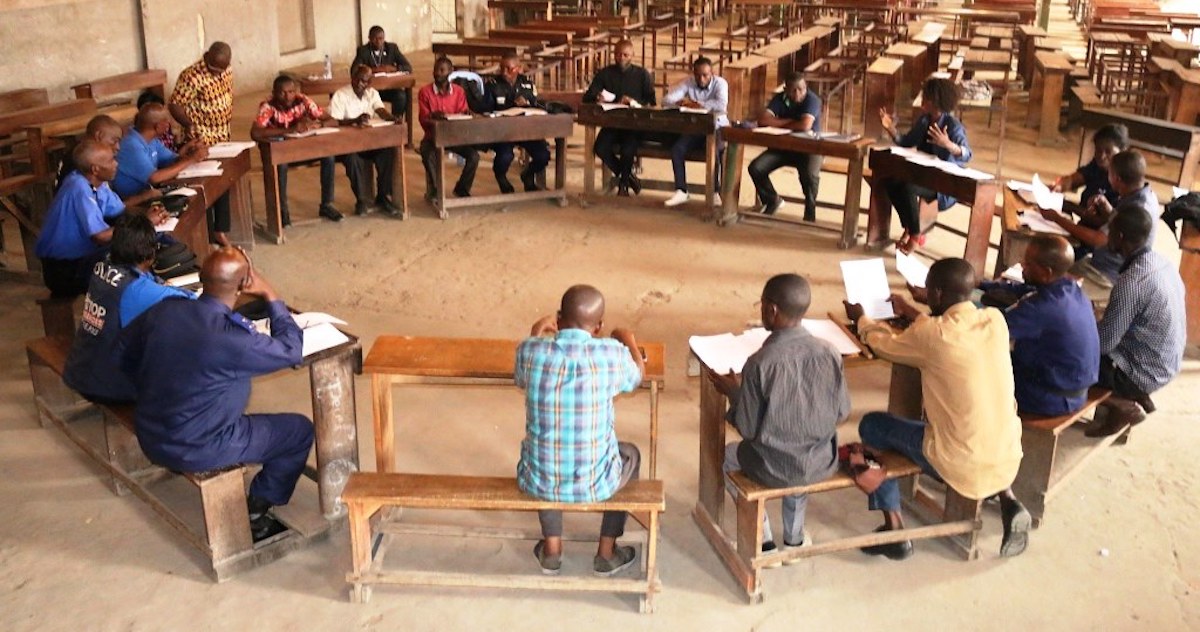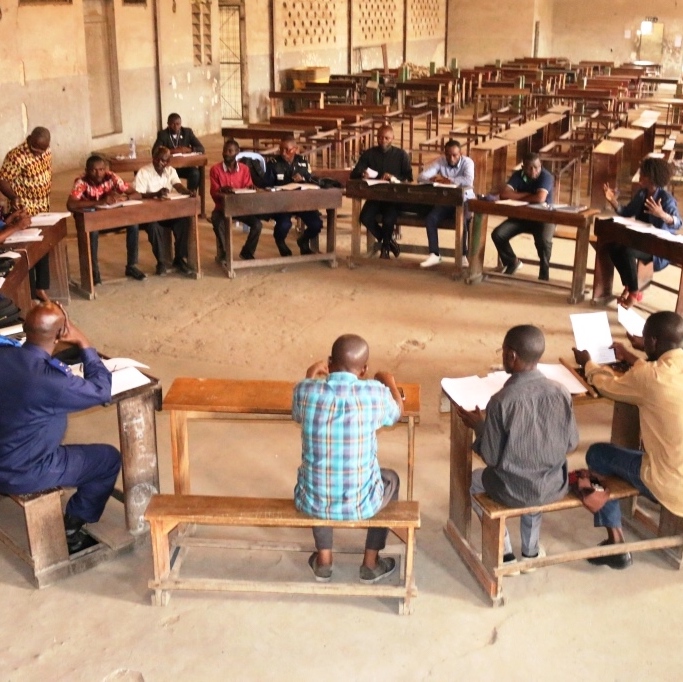
Set against the backdrop of armed conflict and political instability in Democratic Republic of the Congo (DRC), the Living Peace Institute (LPI) works toward attaining sustainable, peace and gender equality at all levels of society.
Using findings from the International Men and Gender Equality Survey (IMAGES), Equimundo and Institut Supérieur du Lac developed the Living Peace model: group discussion sessions which promote positive masculinity and build on nonviolent coping strategies for individuals in post-conflict communities. The latest findings indicate that the project has benefits for men, their families, communities, and society in the North and South Kivu Provinces of eastern DRC. “Living Peace helped families come together,” said one South Kivu community leader.
Prior to this project, 2014 IMAGES research conducted in the DRC highlighted multiple vulnerabilities for women, men, boys, and girls as a result of enduring conflict, persistent poverty, limited state intervention, and widespread inequitable norms. The research also confirmed a strong link between men experiencing or witnessing violence and trauma in conflict and later perpetrating violence at home.
The Living Peace approach addresses the psychological and social needs of men, women, and families affected by violence and seeks to prevent sexual and gender-based violence (SGBV) by working with men and boys to transform harmful masculine norms. Part of the approach includes working with public institutions such as the health sector, the police, the military, and other key service providers, to determine how best to integrate this evidence-based approach into existing services.
The project works with men who are perceived and/or proven to be violent, including those who have used sexual or gender-based violence, by addressing their traumatic experiences and facilitating critical reflection of their behavior. Men are encouraged, over the course of 15 weekly sessions, to adopt new understandings of masculinity, and of what it means to be a man, and to focus on their capacity and responsibility to promote security, peace, and gender equality, in partnership with women. Between 2016 and 2018, LPI hosted 337 group sessions in 48 communities and reached 5,055 men and women in North and South Kivu.
An external evaluation of LPI was conducted in 2018 by InFocus, using a combination of primary data collected by the InFocus evaluation team and secondary data collected by LPI. The evaluation process included focus groups and key informant interviews which were held with LPI project participants and their partners, LPI staff and consultants, and key stakeholders.
According to the evaluation, LPI program participants report:
- Improvements to their and their partners’ mental and physical health, and decreased use of alcohol and other drugs. Participants also report using new strategies to manage their emotions as well as feeling more respected and better integrated into their communities.
- Decreased use of violence, including physical violence against wives and children, by male (and, in some cases, female) participants. Furthermore, men report valuing sexual consent more as well as adopting more positive and accepting attitudes toward sexual assault survivors. Participants also report a decrease in economic violence, with men sharing money and financial decision-making with their partners. Men also report increasing their participation in household and childcare tasks, leading to improved socio-economic, health, and psychological as well as social outcomes for women, children, and families.
- Improved relationships between police and the community. Support group sessions held with military and police officers, through which police learn nonviolent strategies to cope with conflict, has supported the creation of more peaceful relationships with communities.
- Widespread sharing of the LPI methodology by individuals who have already joined the groups, and are now taking on leadership and advisory roles in their communities.
- Clear commitments from police, military representatives, and civil society organizations to integrate the LPI methodology more deeply into their work to address sexual and gender-based violence, due to high levels of satisfaction with the project outcomes.
The Living Peace project shows the immense potential of interventions that are evidence- and community-based, and that are needs-responsive. Such projects also show that engaging men as allies of women and girls can transform harmful gender norms and help to achieve gender equality.
Read more about Living Peace here.
